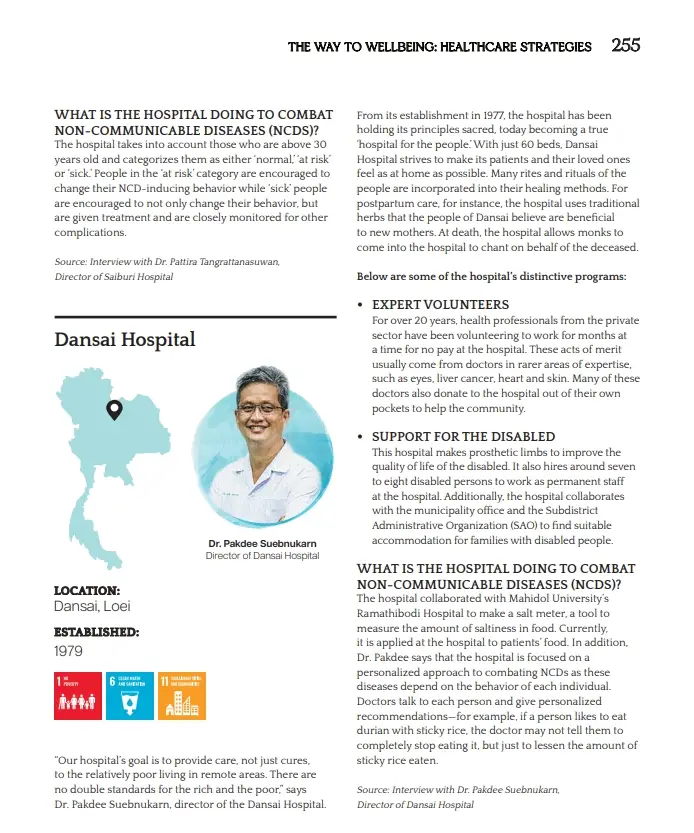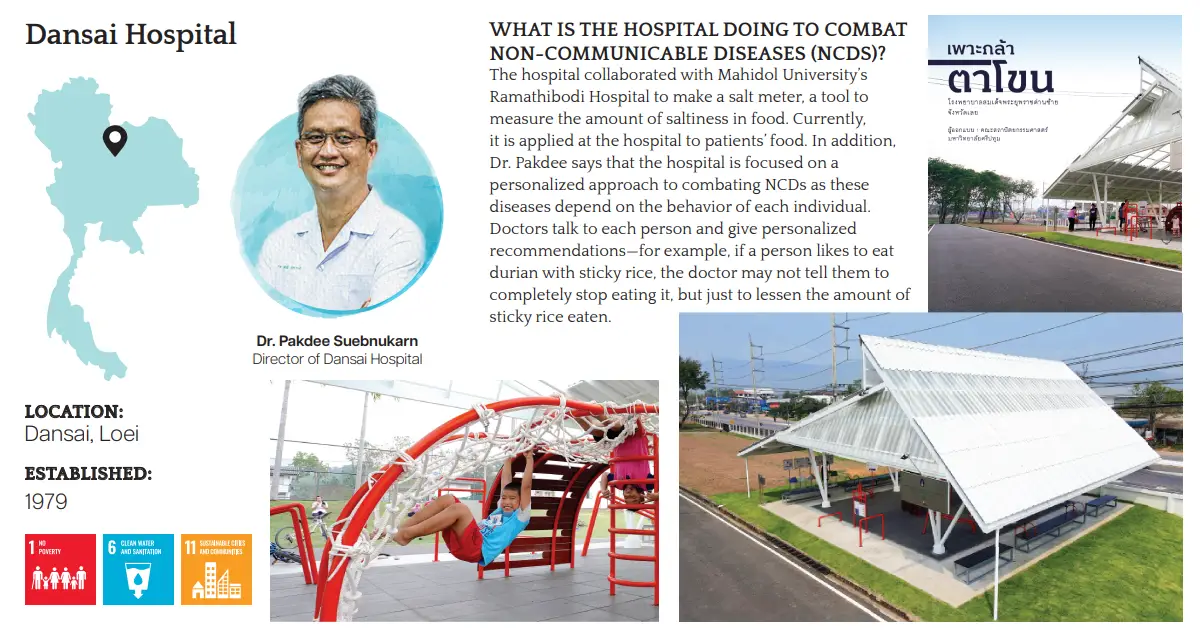LOCATION: Dansai, Loei
ESTABLISHED: 1979
“Our hospital’s goal is to provide care, not just cures, to the relatively poor living in remote areas. There are no double standards for the rich and the poor,” says Dr. Pakdee Suebnukarn, director of the Dansai Hospital.
From its establishment in 1977, the hospital has been holding its principles sacred, today becoming a true ‘hospital for the people.’ With just 60 beds, Dansai Hospital strives to make its patients and their loved ones feel as at home as possible. Many rites and rituals of the people are incorporated into their healing methods. For postpartum care, for instance, the hospital uses traditional
herbs that the people of Dansai believe are beneficial to new mothers. At death, the hospital allows monks to come into the hospital to chant on behalf of the deceased. Below are some of the hospital’s distinctive programs:
- EXPERT VOLUNTEERS
For over 20 years, health professionals from the private sector have been volunteering to work for months at a time for no pay at the hospital. These acts of merit usually come from doctors in rarer areas of expertise, such as eyes, liver cancer, heart and skin. Many of these doctors also donate to the hospital out of their own pockets to help the community. - SUPPORT FOR THE DISABLED
This hospital makes prosthetic limbs to improve the quality of life of the disabled. It also hires around seven to eight disabled persons to work as permanent staff at the hospital. Additionally, the hospital collaborates with the municipality office and the Subdistrict Administrative Organization (SAO) to find suitable accommodation for families with disabled people.
WHAT IS THE HOSPITAL DOING TO COMBAT NON-COMMUNICABLE DISEASES (NCDS)?
The hospital collaborated with Mahidol University’s Ramathibodi Hospital to make a salt meter, a tool to measure the amount of saltiness in food. Currently, it is applied at the hospital to patients’ food. In addition, Dr. Pakdee says that the hospital is focused on a personalized approach to combating NCDs as these diseases depend on the behavior of each individual. Doctors talk to each person and give personalized recommendations—for example, if a person likes to eat durian with sticky rice, the doctor may not tell them to completely stop eating it, but just to lessen the amount of sticky rice eaten.
Source: Interview with Dr. Pakdee Suebnukarn, Director of Dansai Hospital





